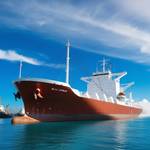Ship Simulators
A ship simulator is an advanced training device; an electronic or mechanical system used to expose vessel operators and crew members to typical shipboard conditions and systems. Simulation training is not a substitute for the experience of training on an actual vessel, but is used as a preliminary method to thoroughly familiarize students with equipment, procedures, and processes. Simulation also is useful for review and for demonstrating updates and modifications to existing craft.

Liberia Opens Maritime Training Institute
The Liberia Maritime Training Institute (LMTI) was officially opened by Liberia President…

Wallem Adds Three Ship Simulators in Ukraine
The Wallem Maritime Training Center in Odessa, Ukraine added three training simulators…

PC Maritime to Install ECDIS in 50-vessel China Shipping Deal
PC Maritime’s Navmaster ECDIS has been chosen by China Shipping Group to be fitted…
MSI to Train NOAA Officers
Maritime Simulation Institute to Provide Professional Maritime Training to NOAA Officers…
HR Wallingford Sign Navigation Simulator Agreement with FMSC
HR Wallingford has recently signed an alliance agreement with Fremantle Maritime…
Cal Maritime Will Host 2012 Koch Sea Scout Cup
The California Maritime Academy (Cal Maritime), a campus of The California State University…
Panama Canal Authority Opens Simulator Center
In commemoration of the Panama Canal’s 88th Anniversary on August 15th, Panama President…

Bulk carriers are vessels that transport bulk cargo, such as coal, ore and cement. Bulk carriers play an important role in the global trade, facilitating the transportation of large quantities essential raw materials for different industries.
The global maritime industry is under immense pressure to meet ambitious climate targets, spearheaded by the International Maritime Organization (IMO)'s strategy to reach net-zero emissions by or around 2050. This mandate has triggered the most significant technological and financial upheaval the sector has ever faced. This article explores the core challenge—the decarbonization dilemma—focusing on the complex regulatory landscape (CII, ETS) and the intense, multi-fuel race to find viable, scalable, and safe "green fuels." We analyze the leading contenders—ammonia, methanol, and hydrogen—highlighting their pros, cons, and the colossal infrastructure investment required to power the future of global shipping.
Marine salvage is the process of rescuing a ship, its cargo, or other property from peril. Salvage encompasses rescue towing, putting out fires, patching or repairing a ship, refloating a sunken or grounded vessel, moving a disabled vessel in order to clear navigation channels…
The maritime industry offers a vast array of career opportunities, each playing a crucial role in the global economy. From navigating the high seas to ensuring the smooth operation of ports and shipping lines, maritime careers are diverse and dynamic. This article explores the various career paths available in the maritime industry, the skills required, and the benefits of pursuing a career at sea.
A ship simulator is an advanced training device; an electronic or mechanical system used to expose vessel operators and crew members to typical shipboard conditions and systems. Simulation training is not a substitute for the experience of training on an actual vessel…






 Read the Magazine
Read the Magazine
